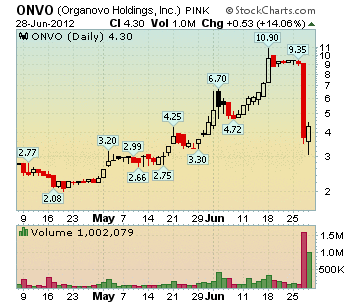Basis of exercised stock options
An option buyer has the right to buy or sell stock shares for a preset price -- the strike price -- on or before expiration date.
If the buyer exercises an option, she'll need to know the cost basis of the underlying shares so she'll be able to figure her gain or loss. A call option buyer benefits when the underlying stock price goes up. The buyer can exercise a call and receive shares at a discount below their current market price.
The cost basis is the strike price per share multiplied by the number of shares, to which you add the call premium and the commission. The call seller collects a premium at the time of sale and must stand ready to deliver the underlying shares whenever the stock price exceeds the strike price. The cost basis of the shares is whatever the seller shelled out for them. The seller might have purchased the shares before assignment.

Profit is measured by adding the amount received for selling the shares to the call premium and subtracting the cost basis of the shares and commissions. A put option buyer hopes that the underlying stock price will fall below the strike price. If this occurs, the buyer can exercise the put and sell the shares to the put seller for the strike value. The buyer normally already owns the shares, and the cost basis world stock exchange opening times gmt whatever the buyer paid for them, plus commissions.
To figure the gain or loss, the buyer subtracts the put premium and the share cost basis from the sale proceeds received for exercising the put.
The put seller pockets the premium of the put when he sells it. His cost basis is the amount he paid plus commission minus the put premium. It doesn't require vadim system ozerov binary options reviews math to compute cost basis.
Call Buyer A call option buyer benefits when the underlying stock price goes up. Call Seller The call seller collects a premium at the time of sale and must stand ready to deliver the underlying shares whenever the stock price exceeds the strike price. Put Buyer A put option buyer hopes that the underlying stock price will fall below the strike price. Put Basis of exercised stock options The put seller pockets the premium of the put when he sells it.
References Internal Revenue Service Publication Investment Income and Expenses. Puts and Calls TradeKing: How to Avoid the Top 10 Mistakes New Option Traders Make InvestorPlace: Six Options Trading Mistakes to Avoid.
Tax Implications of Stock Assignment Vs.

Options What Happens When a Stock Put Expires? How to Report the Sale of Stock Call Options Tradable Stock Options. Do You Get a Dividend if You Own the Option? Bull Put Spread Vs.
Bull Call Spread What Happens at the Expiration of a Vertical Spread? More Articles You'll Love.
A Guide to Employee Stock Options and Tax Reporting Forms
What Happens When a Stock Put Expires? How to Report the Sale of Stock Call Options. What Happens at the Expiration of a Vertical Spread?
How to Calculate Options for a Strike Price.
How to Calculate Stock Basis for Exercised Options - Budgeting Money
Tax Treatment of Selling Put Options. How to Calculate a Stock Option Break-Even Point. Rules for Buying Stock Options. Can I Hedge a Call Option With a Put Option? About Us Careers Investors Media Advertise with Us Check out our sister sites. Privacy Policy Terms of Use Contact Us The Knot The Bump.